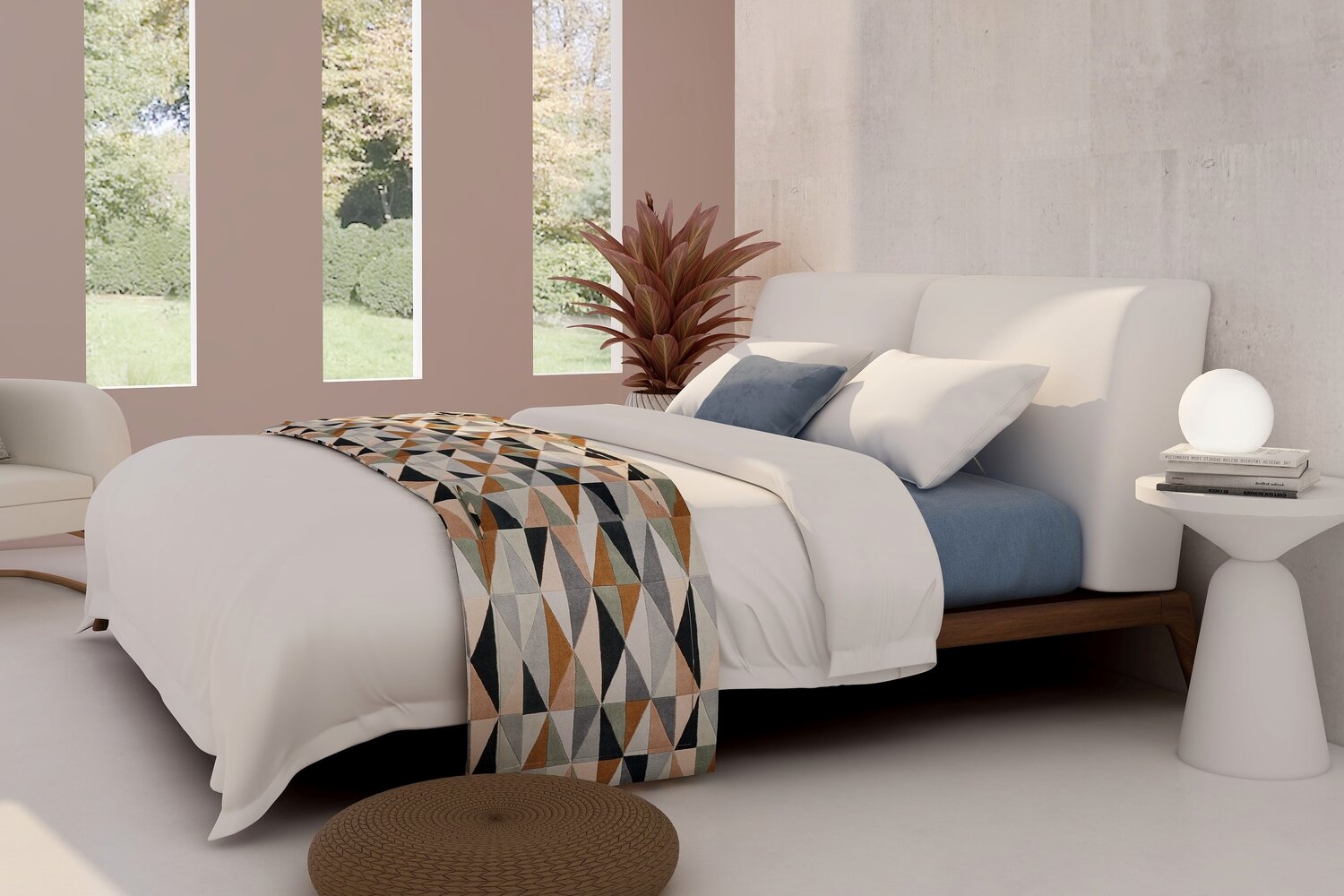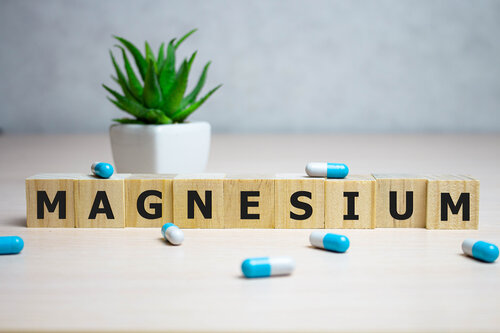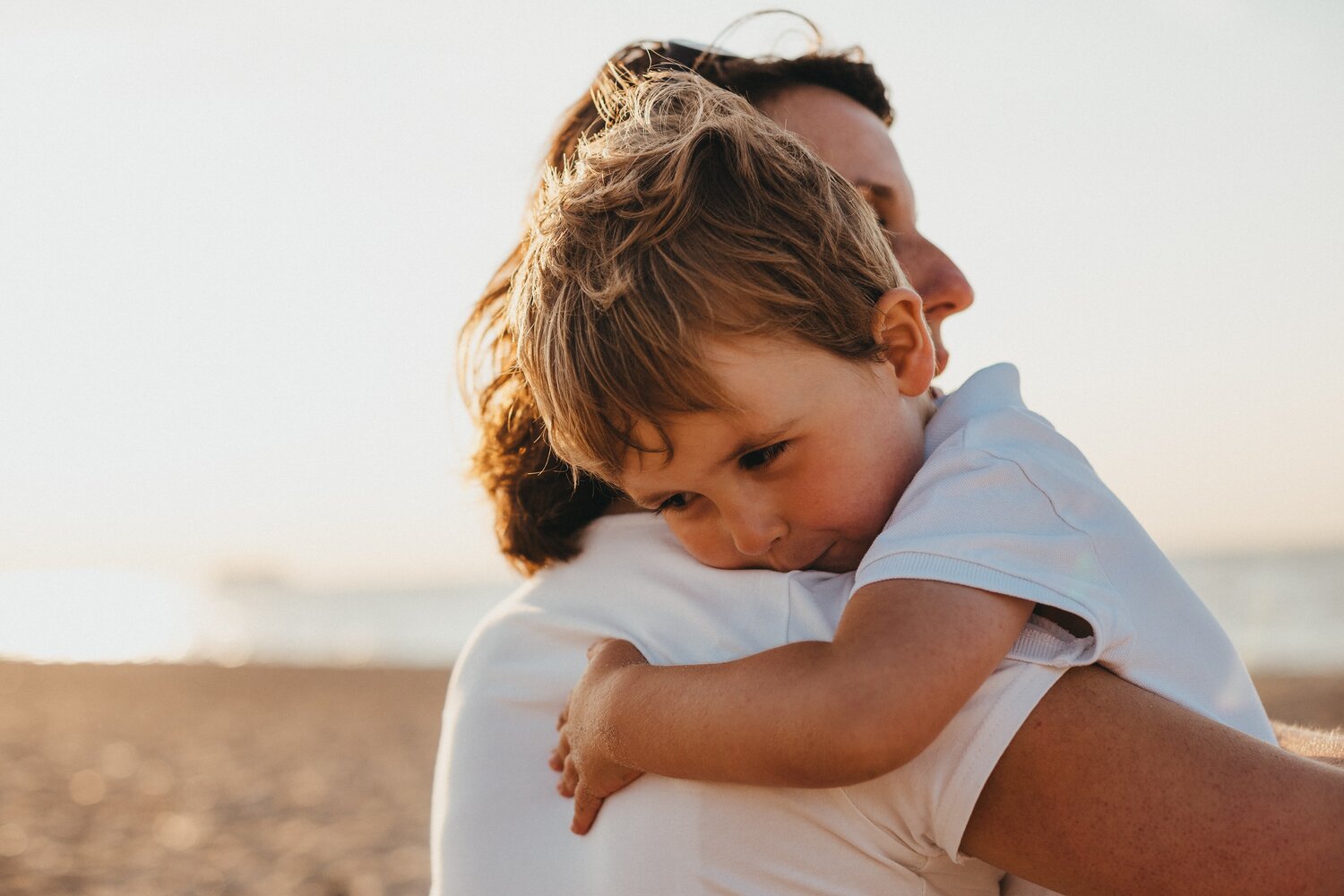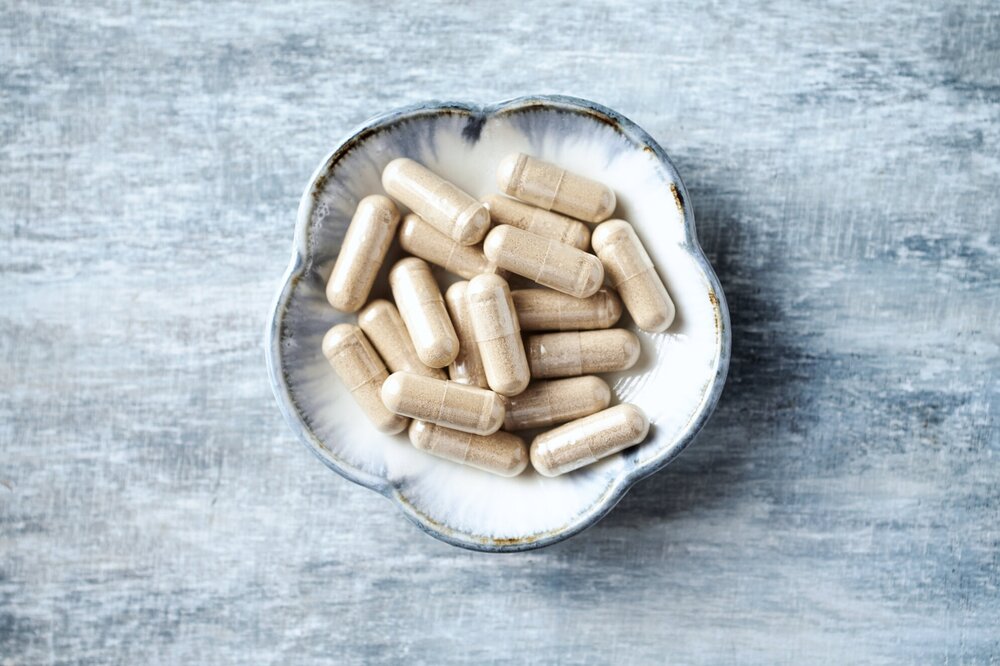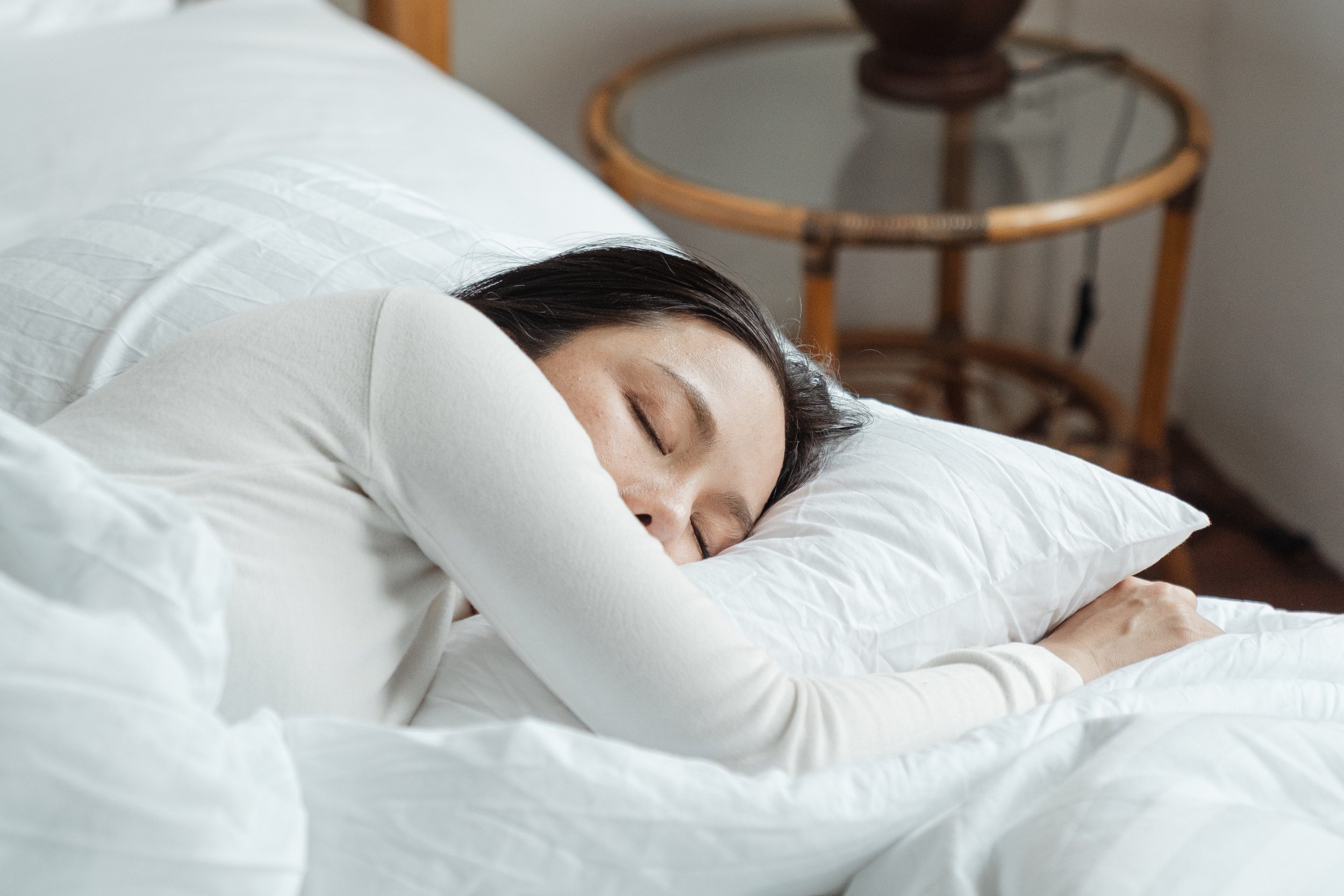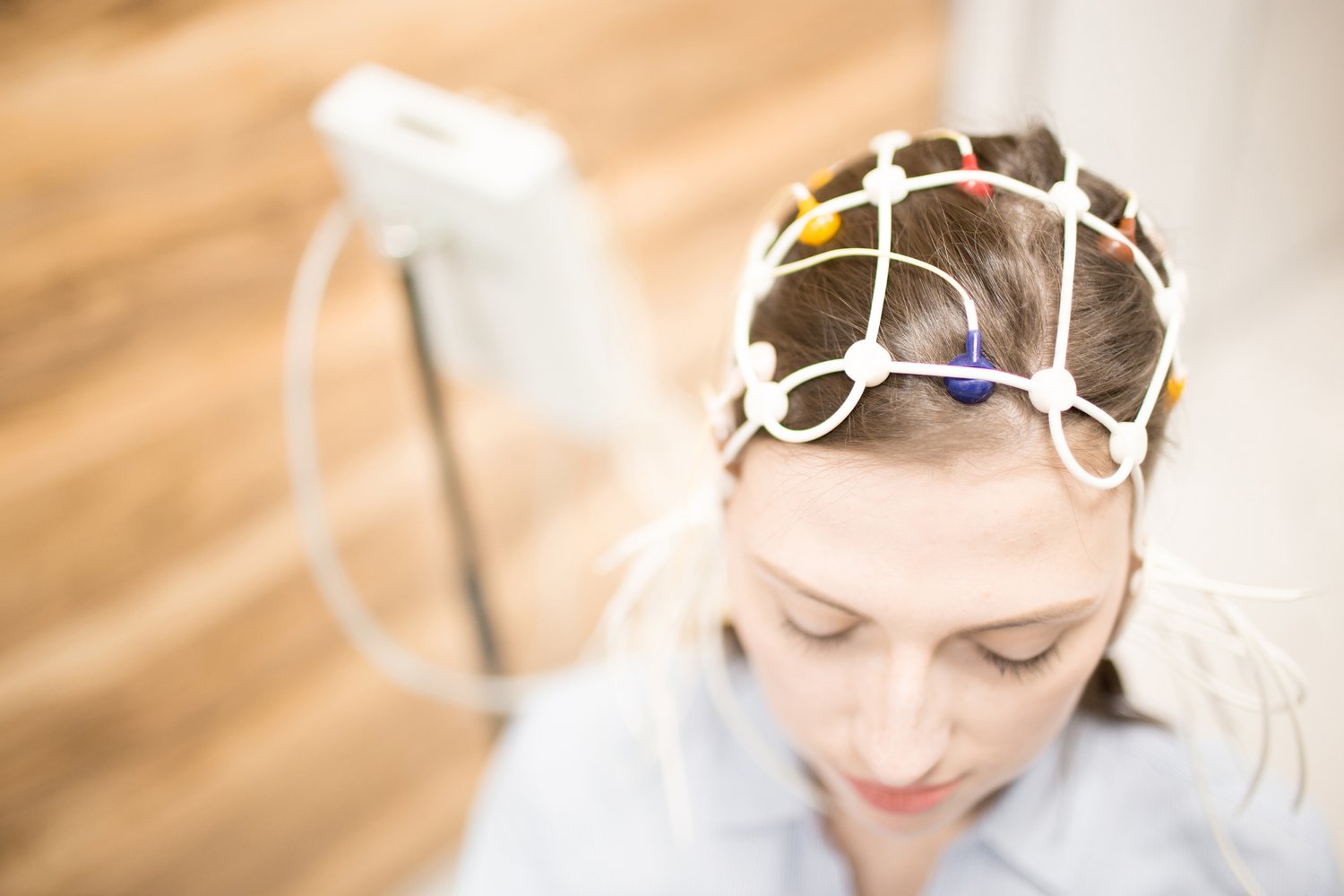If you’ve ever had trouble sleeping, you might have tried taking sleep supplements or medications. Maybe you even tried improving your sleep hygiene by unplugging from electronics or taking a warm bath close to bedtime. If you’re still struggling to get good sleep, you may be wondering what else you can do.Sometimes supplements or good hygiene aren’t enough for a good night’s sleep if the source of your sleep issues is in your environment. Although we don’t spend much time thinking about creating a healthy bedroom, these five factors can actually have a big impact on our sleep quality:
For each category, we’ll review the science and our favorite non-toxic recommendations for an ideal sleep sanctuary.
Sight: How Blue Light Affects Sleep

Our visual environment, especially exposure to light, can profoundly influence our sleep. Under dim light conditions, our brains produce melatonin – a hormone that sends signals to our bodies that it’s time for sleep. Many of us unknowingly disrupt our body’s natural melatonin production and circadian rhythm by exposing ourselves to lights at night.
Specifically, blue light from electronic devices and energy-efficient light bulbs inhibits melatonin production and prevents us from falling asleep quickly. That’s why it’s important to limit the use of phones and other electronic devices close to bedtime.
WHAT COLOR LIGHT HELPS YOU SLEEP?
Studies suggest that red light therapy supports melatonin production in the evening and improves sleep quality. For this reason, red light is a good choice to use as a night light before bedtime and can be helpful for children afraid of the dark.
To eliminate light sources in your bedroom, try the following natural or non-toxic products:
- Blackout curtains: Eliminate any outdoor light sources, including street lights. Pottery Barn makes a certified non-toxic linen curtain with blackout lining.
- Sleep masks: These can be especially useful if you can’t eliminate sources of light in your bedroom environment. One of our favorites is this all-natural, GOTS-certified mask that fits comfortably.
- No-light alarm clocks: Use this low-toxin alternative to digital options, which has no background light or loud ticking noise which could disrupt your sleep.
- Red night light: Red light is the least disruptive to your child’s natural melatonin production.
- Flux: Eliminate blue light from your computer screen if you’re working at night.
- Blue-light blocking glasses: These glasses by Swanwick are made specifically for night-time use to help you optimize your sleep.
Sound: Relaxing Sounds for Sleep
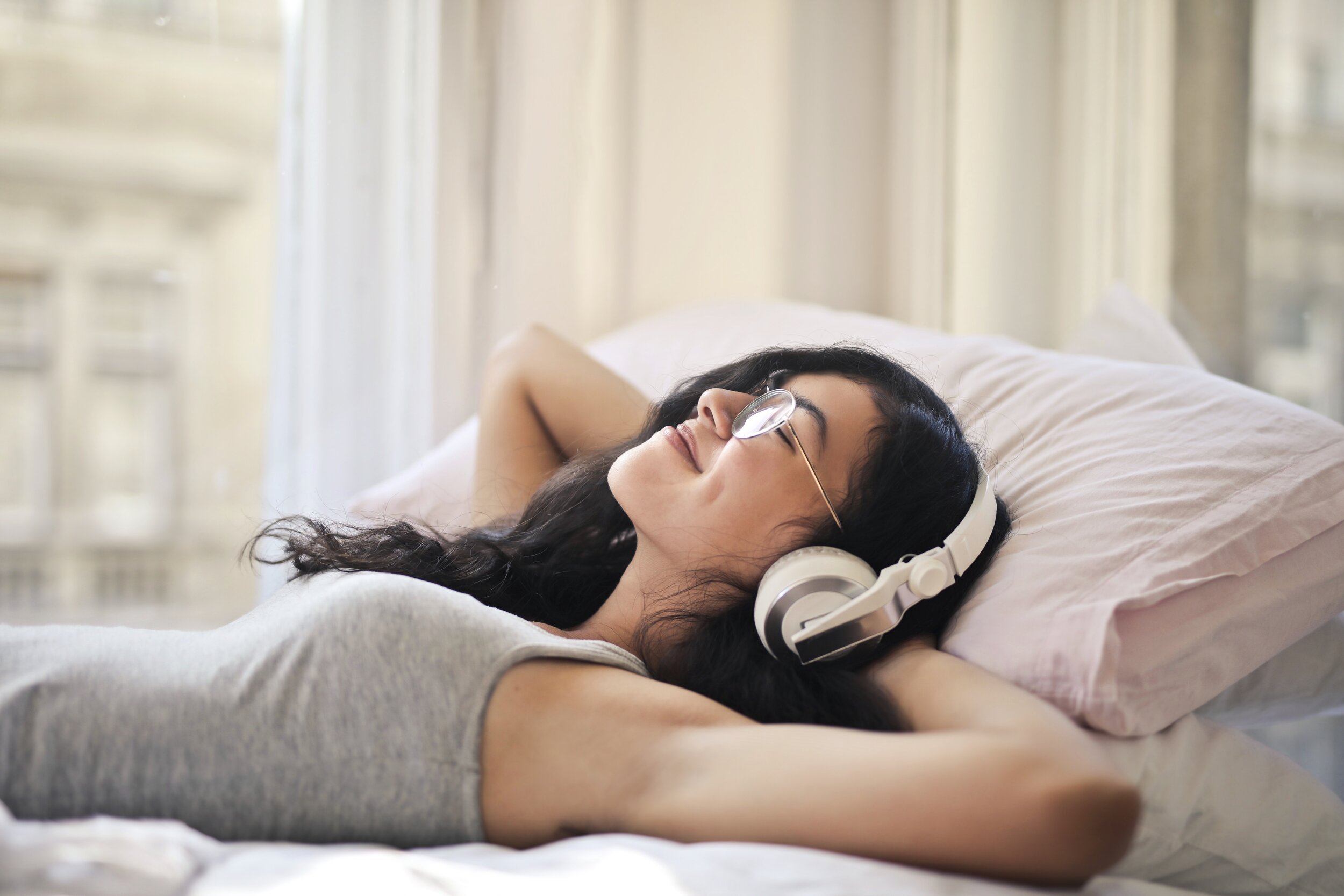
While it’s obvious that quiet and silence help us doze off at night, there are also certain colors of noise that can actually result in better sleep quality.
Pink noise is a type of background noise similar to white noise, but the lower pitches are louder than higher pitches. This characteristic of pink noise makes it more similar to relaxing sounds like rainfall, ocean waves, or rustling leaves. Studies found that pink noise at night may help people fall asleep faster and get deeper, less fragmented sleep.
To optimize sound in your bedroom, try the following tools:
- Soundproof curtains: Block out both light and noise with curtains made of thicker, soundproof material.
- Pink noise: If you are interested in trying out pink noise, you can easily listen to it through apps, Youtube videos, and sound machines.
Temperature: Optimal Temperatures for Sleep
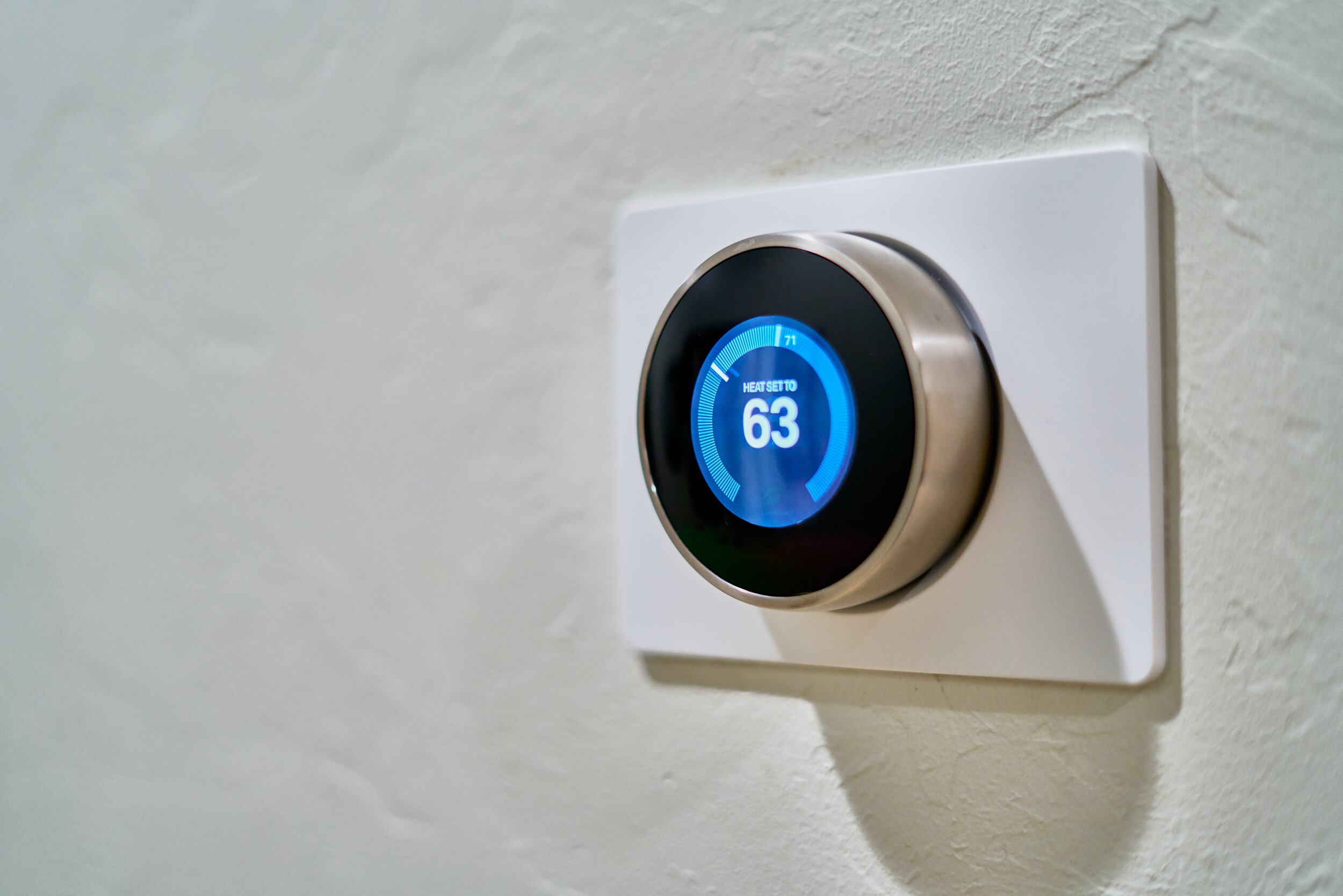
We often think of sleep as a time to be warm and cozy, but too much warmth can actually prevent us from getting deep, restful sleep. In fact, researchers found that temperature is the most important factor for a good night’s sleep. This may be because our bodies naturally cool down during sleep, which allows our brains to enter slow-wave sleep and do the important work of consolidating memories.
According to the National Sleep Foundation, the ideal temperature ranges are:
- 60-68°F for adults
- 65-70°F for toddlers
For those who need more help with staying cool at night, try these non-toxic sleep products:
- Mulberry silk comforters: Bed products made with mulberry silk can provide good ventilation and help with temperature regulation for hot sleepers.
- Cotton sheets & fabric: These 100% organic cotton sheets from Sleep & Beyond are more breathable than synthetic sheets.
Touch: Weighted Blanket Sleep Benefits
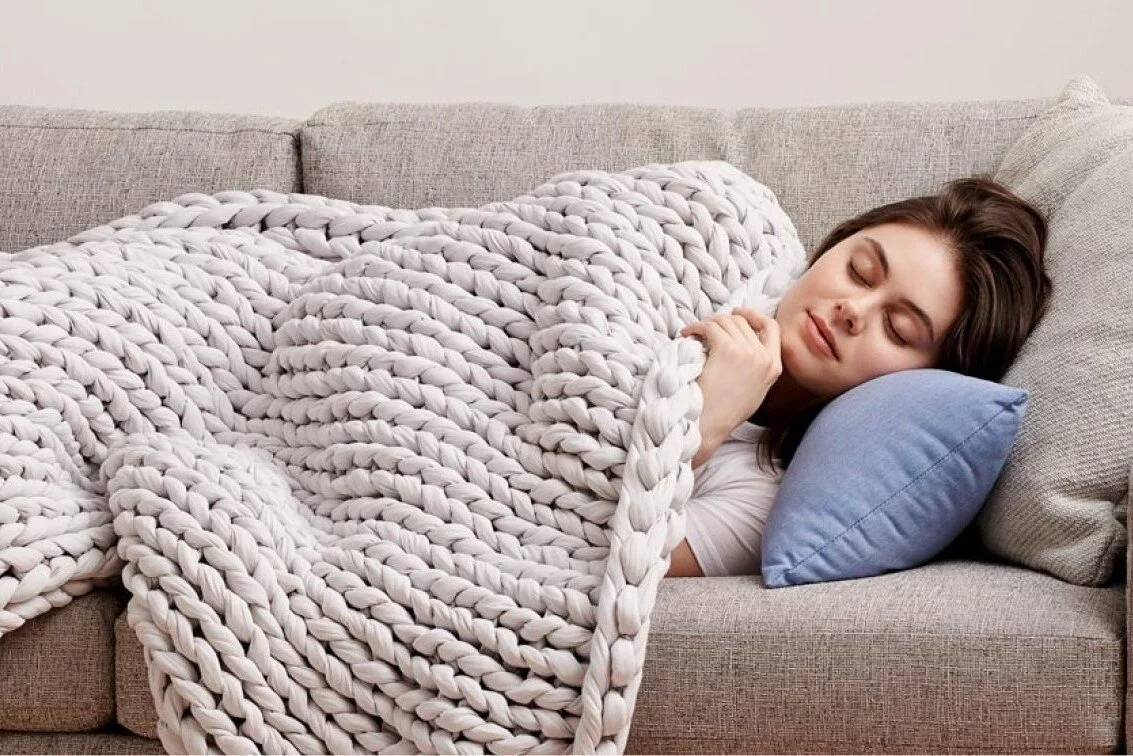
Smell: Essential Oils for Sleep
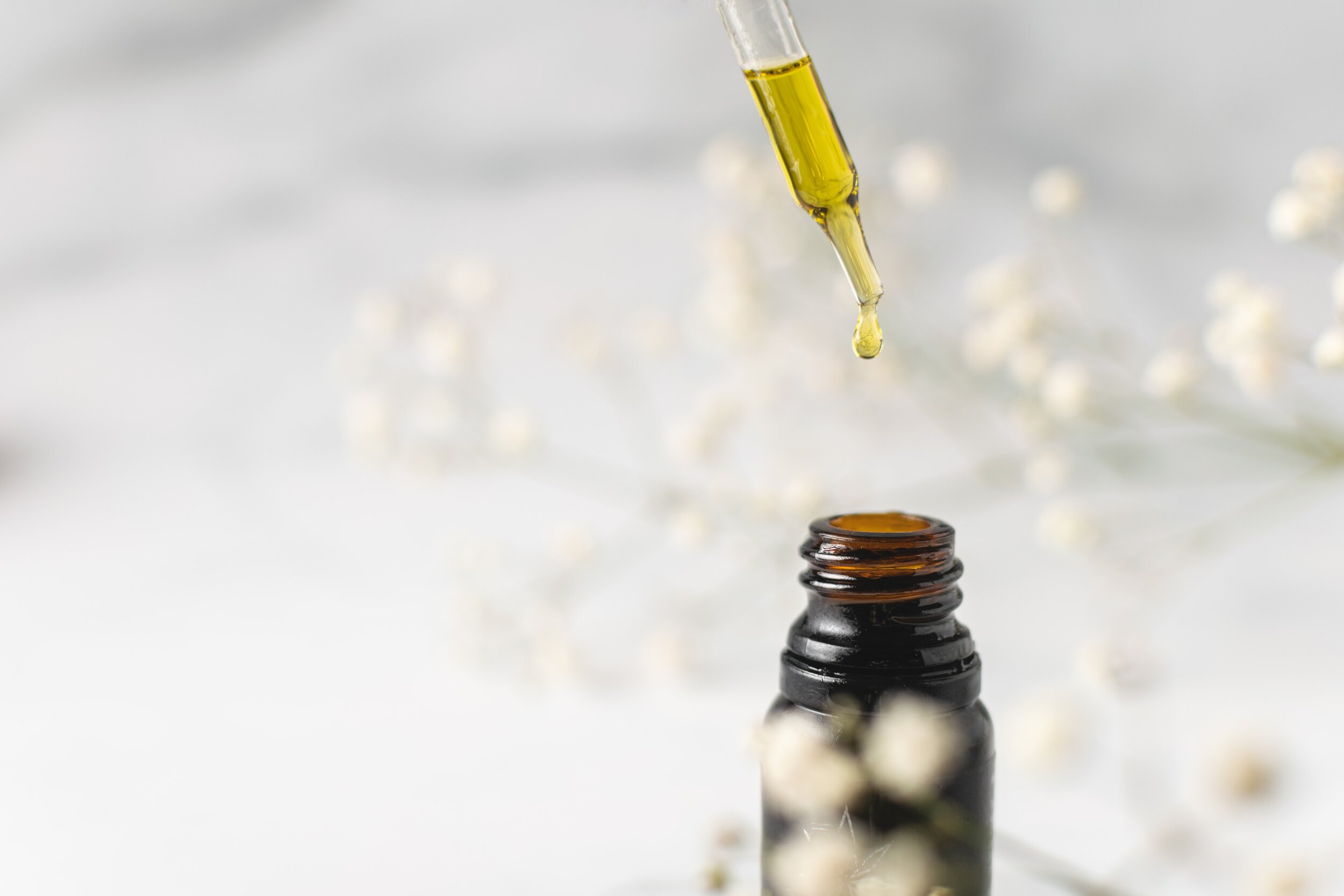
While smells like lavender, peppermint, and eucalyptus have been popular amongst aromatherapy fans, there’s actually a growing body of scientific research supporting the use of certain essential oils to promote relaxation for better sleep.
WHAT ARE THE BEST ESSENTIAL OILS FOR SLEEP?
While we can’t say conclusively what the best essential oil is for sleep issues, the following oils have some evidence supporting their use at bedtime:
HOW DO YOU USE ESSENTIAL OILS FOR SLEEP?
There are multiple ways to use essential oils before bedtime, including:
- Diffusers
- Roll-ons
- Inhalation
- Massage on skin (make sure to put in carrier oil as some of the oils can be strong and irritating to the skin if applied directly)
For those who’d like to try aromatherapy for better sleep, we like Revive Essential Oils, which are therapeutic-grade and include many organic options.
Natural Sleep Aids for Better Sleep
Some supplements can also help with sleep issues related to temperature and light:
- Glycine: This amino acid helps regulate our core body temperature and may provide additional support for hot sleepers.
- Melatonin: Taking melatonin supplementation may help those with circadian rhythm issues, such as those who have recently traveled through time zones, have jet lag, or work overnight shifts. It may also help people who can’t eliminate all light sources in their bedroom, such as those who live with roommates or stay in hotels often.
Get better sleep by improving your environment
Our environment can affect our sleep more than we realize. We hope these tips will help you get a healthier and better night’s sleep.
If your sleep issues persist over several months, it’s important to check in with your doctor for other potential health conditions that require evaluation and treatment, such as sleep apnea. Always work with a medical professional before initiating any new supplements or treatments and to check for potential drug interactions. We are not affiliates for any of the links to products or supplements on this page.
References
